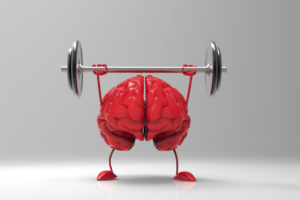How Much to Sleep for a Healthier Life

A comfortable bed, a clear conscience, and the absence of the Internet all contribute to a good night’s sleep. By overcoming the temptation to finish important tasks, finish watching a movie, finish reading an article, you will give yourself precious minutes of rest. There will be a new day for business! It will begin with a burst of energy and positivity, provided that rest was sufficient to restore strength.
Why Sleep Is so Important
Our wise ancestors said: it’s better to be sleep-deprived than sleep-deprived. This postulate is confirmed by scientific research in different countries of the world. The main conclusion reached by scientists is the following: the duration of sleep determines the life expectancy of a person.
Chronic sleep deprivation has a negative effect on the organism and promotes the development of serious diseases:
- Weakening of the cardiovascular system.
- Brain deterioration – the emergence of a tendency to dementia, poor mood and performance.
- Risk of developing type 2 diabetes.
- Overweight.
- Decrease in immunity, resistance to colds and viral diseases. In case a prophylactic vaccination has been given, its effectiveness decreases.
Each of these phenomena can reduce quality of life and lead to serious health problems.
The Concept of Deep Sleep
Human sleep is a cyclical process, during a night’s rest two phases alternate. They are conventionally called slow and fast. The slow phase of sleep for adults lasts 1.5-2 hours. This is followed by a period of rapid sleep, which lasts 5-10 minutes. During the night, there are 4-5 cycles. The closer a person is to waking up, the shorter the slow phase of sleep and the longer the fast phase.
It turns out that with 8 hours of sleep, the duration of slow sleep is 6.5 hours. In the structure of sleep, it’s the slow phase that ensures deep sleep. It consists of four stages:
- Light sleep, falling asleep, and drowsiness are the borderline state between dreaming and dreaming. One’s muscles are relaxed, consciousness is confused, and one can talk to it, but not count on full adequacy.
- Falling asleep, immersed in sleep is responsive, capable of being interrupted by the slightest external influence. But gradually the heart slows its rhythm, body temperature drops, and consciousness shuts down.
- Deepening sleep. Medics call this stage delta sleep.
- Dipping into the slow delta sleep stage, a mode of minimal energy consumption. The muscles of the body are completely relaxed, the pulse and rhythm of breathing are slowed, and the brain is disconnected from the outside world. A deeply asleep person is visited by dreams. It’s difficult to awaken him, and if one succeeds, the awakened person will be disoriented and “broken.
The deep sleep phase is extremely important because during this period, processes take place for the realization of a person’s complete rest:
- The human body relaxes due to a decrease in the activity of the sympathetic nervous system.
- Regenerative processes take place.
- Metabolic processes slow down.
- The pulse becomes rare.
- Anabolic hormones – growth hormone and testosterone – are produced.
- Production of stress hormones – adrenaline, cortisol, etc. is reduced.
If slow sleep is necessary for the full functioning of the body, the fast sleep phase restores mental functions. Therefore, sound productive sleep is considered a universal cure for all diseases.
How Much Sleep a Person Needs to Get a Good Sleep
The number of hours of sleep depends on a person’s age. And lack of sleep, fraught with weariness, fatigue, sleepiness is no less dangerous than oversleeping. Those who like to sleep for a long time more often suffer from cardiovascular diseases. The unforgiving statistics are as follows: 12% of people who sleep less than 6 hours a day, can die before the deadline, among those who sleep more than 9 hours – the risk of dying before the deadline reaches 30%!
The optimal duration of sleep for an adult between the ages of 25 and 65 is 7 to 9 hours. Individual characteristics of the body will suggest the most correct figure, but within those two hours.
For other age categories, the picture is as follows:
- Babies up to 3 months should sleep up to 17 hours a night.
- Infants up to a year old need 12 to 15 hours of sleep.
- Toddlers under 2 years of age need 12 to 14 hours of sleep.
- Preschoolers 3 to 5 years old need 10 to 13 hours of sleep.
- Junior high school students up to 13 years old need 9 – 11 hours for a proper rest.
- Teenagers aged 14-17 need 8-10 hours of sleep.
- Boys and girls 18 to 25 years old require 7 to 9 hours of sleep, as do adults.
- A group of seniors over 65 needs 7 to 8 hours of rest each night.
All in all, we spend about a third of our lives sleeping!
Causes of Insomnia
Sleep disorders cause a lot of damage to the body, so it’s important to identify the cause of insomnia as early as possible and eliminate it. The most dangerous is considered prolonged insomnia lasting more than 3 months. It may be caused by a complex of reasons and without the help of specialists in this situation is impossible.
Doctors consider psychosocial stress, depression, active brain activity, non-observance of sleep and wakefulness regimes, thoughtless intake of stimulants (coffee, alcohol, drugs) to be the main triggers of sleep disorders.
The elderly, patients suffering from endocrine, infectious and neurological diseases are at risk of developing insomnia. It isn’t always possible to eliminate the somatic causes of disorders of the most important physiological process, but by observing sleep hygiene, insomnia can be alleviated.
Is It Good to Sleep During the Day?
For a little person, a nap during the day is a must. For a large person, a nap during the day isn’t forbidden. People who are able to rest in the middle of the day improve memory and concentration. Naps will restore strength, reduce the likelihood of depression, cardiovascular problems and won’t provoke insomnia.
But don’t get carried away, a long nap isn’t useful. It disrupts the rhythm of life, the endocrine system and leads to insomnia at night. Rest in the middle of the day should be:
- No longer than 20-30 minutes between 1 and 3 pm.
- On a comfortable sleeping place (sofa, couch, chair).
- Without loud sounds, bright lights and other irritating factors.
- Experienced lovers of afternoon naps recommend drinking a cup of coffee or tea before resting; the drink will take effect in 20 minutes and it will be easier to wake up. After a day’s rest, it’s useful to do a little warm-up for the muscles.
How to Wake up Early
For “skylarks” this question is irrelevant, they wake up easily and do not experience the torment of a long waking up. There are people “pigeons”, for which the early rise is also not a difficult task. The real sufferers from early waking “owls”. For them, some useful tips:
- Go to bed not too late and not after a dinner during which you play, read a Gonzo’s Quest slot review, or watch movies.
- Wake up with the first alarm, do not delay getting up for another 5 minutes.
- Turn on upbeat music and as much light as possible.
- Drink a glass of water.
- Do pleasant, unencumbered exercise with rhythmic music.
- Wash your face with cool water and, if you are able, take a contrast shower.
- Energize the body with a hearty breakfast!
Everyone who decides to change the rhythm of life is convinced of the benefits of an early rise. Those who get up early have a better chance of getting a pleasant surprise from fate.



































No comments